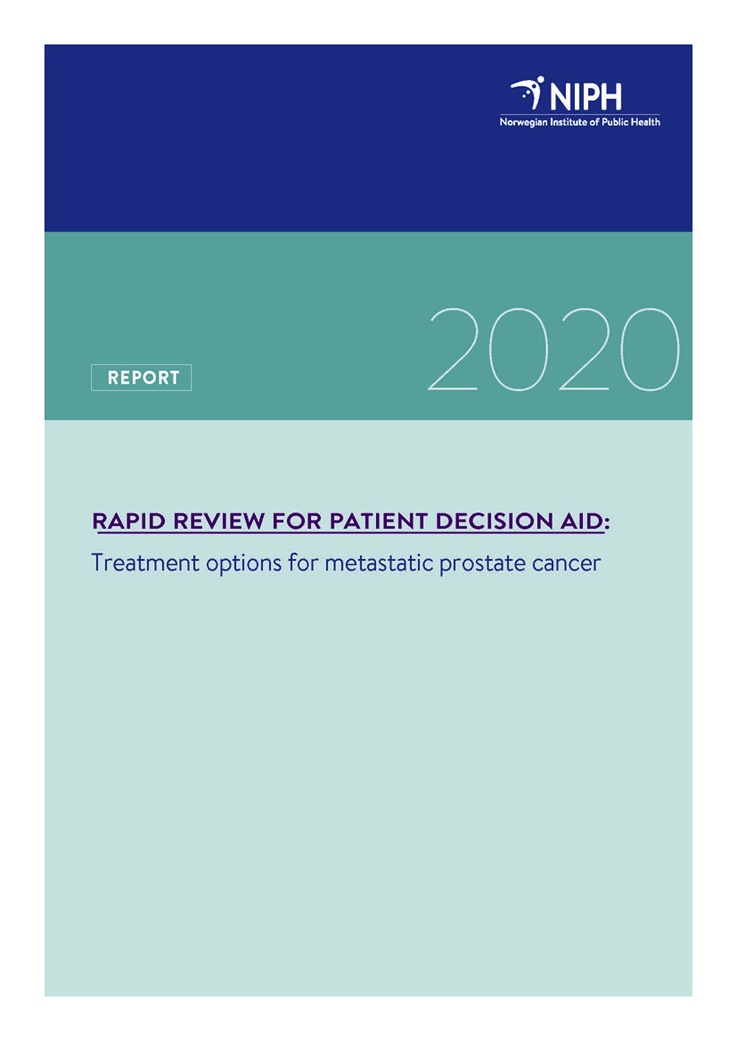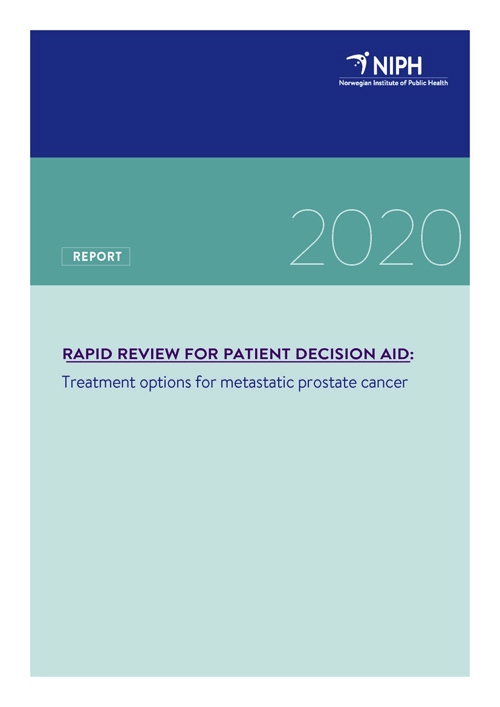Treatment options for metastatic prostate cancer: rapid review for patient decision aid
Systematic review
|Published
We aimed to summarise findings about the effectiveness of androgen suppression therapy, chemotherapy, radiation and radioactive treatment in addition to stand-ard care (medical or surgical castration) for metastatic prostate cancer.
Key message
Prostate cancer is one of the most common types of cancer and it affects an increasing number of mainly elderly men. Usually prostate cancer grows slowly and is initially confined to the prostate gland, where it may not cause serious harm. In advanced metastatic prostate cancer hormone therapy (medical and/or surgical) is the first choice of treatment.
We aimed to summarise findings about the effectiveness of androgen suppression therapy, chemotherapy, radiation and radioactive treatment in addition to standard care (medical or surgical castration) for metastatic prostate cancer.
We found seven reviews and supplied with two newer trials. Based on our summary of the findings:
Maximal androgen blockade compared to monotherapy probably
- improves survival slightly at two years follow up
- improves survival at five years follow up
Taxane-based chemohormonal therapy with standard care compared to standard care alone in hormone sensitive phase
- probably reduces prostate-cancer specific death
- may increase quality of life (one year follow up)
- may increase adverse events (four years follow up)
Chemotherapy (prednisone plus cabazitaxel) plus standard care compared to other chemotherapy (prednisone plus mitroxantrone) plus standard care in castration-resistant patients
- probably reduces death during study (2.5 years)
- may make little or no difference on pain
- probably increases nausea
- probably reduces disease progression
- probably slightly reduces death
Radiotherapy plus standard care compared to standard care alone
- probably make little or no difference on survival (at three years)
- increases urinary tract infection (at three to seven months)
Radioactive treatment in addition to or compared to standard care
- we are not sure if radioactive treatment influence overall survival
- may slightly delay symptomatic skeletal events
- may slightly improve quality of life
Docataxel, chemotherapy in addition to standard care may slightly increase survival
Active treatment with noncytotoxic agents, abiraterone acetate plus prednisone and enzalutamide, and radium-223 dichloride (Ra-223) is associated with varying levels of improvement in health related quality of life

